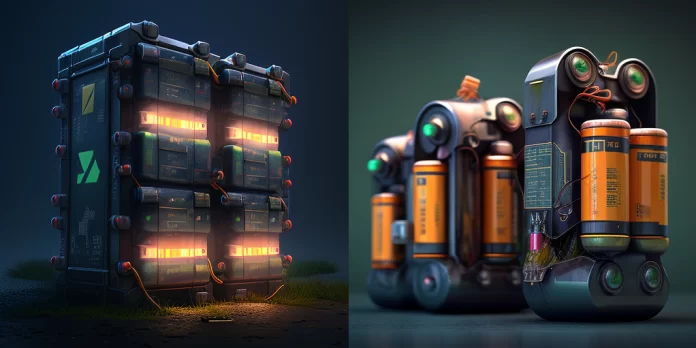The world is becoming increasingly reliant on batteries. From smartphones to electric vehicles, from medical devices to renewable energy storage systems, batteries are everywhere. As the demand for battery-powered technology continues to grow, so does the need for more efficient, longer-lasting, and environmentally sustainable batteries.
In this article, we have selected ten of the most exciting battery companies that are at the forefront of battery innovation, developing cutting-edge technologies and disrupting the industry with their novel ideas.
Faradion: At the forefront of non-aqueous sodium-ion battery technology

Faradion is a global leader in the development and commercialization of non-aqueous sodium-ion battery technology. Established in 2011, the company has made significant strides in revolutionizing the energy storage industry by creating a safer, cheaper, and more environmentally-friendly alternative to lithium-ion batteries. The company is developing a range of battery products for various energy storage applications, including grid-scale energy storage, residential energy storage, and industrial energy storage.
One of Faradion’s key advantages is its ability to leverage existing manufacturing infrastructure, as sodium-ion batteries can be produced using many of the same processes and equipment used for traditional lithium-ion batteries. This enables Faradion to rapidly scale up production and bring its products to market quickly and efficiently. Faradion has prioritized the development of high-energy density cells to meet the demands of current and future applications. In fact, their current production-scale cells can deliver a specific energy of up to 160 Wh/kg in 32 Ah pouch cells, which is equivalent to the energy density of a lithium-ion battery. Faradion’s next-generation sodium-ion cell design is expected to deliver a rated specific energy in excess of 190 Wh/kg.
The cycle life of Faradion’s sodium-ion batteries can range to many thousands of cycles, depending on the depth of discharge and charge/discharge conditions. Additionally, these batteries can be cycled under conditions suitable for both energy storage and mobile applications. Sodium-ion batteries are also inherently capable of fast charging, with sub-20-minute charge times. The company has also secured partnerships with several major companies in the energy industry, including Land Lover and Phillips 66. Faradion was acquired by Indian Conglomerate, Reliance Industries for $135 Million.
Natron Energy: High-Power, Long-Life Sodium-Ion Batteries
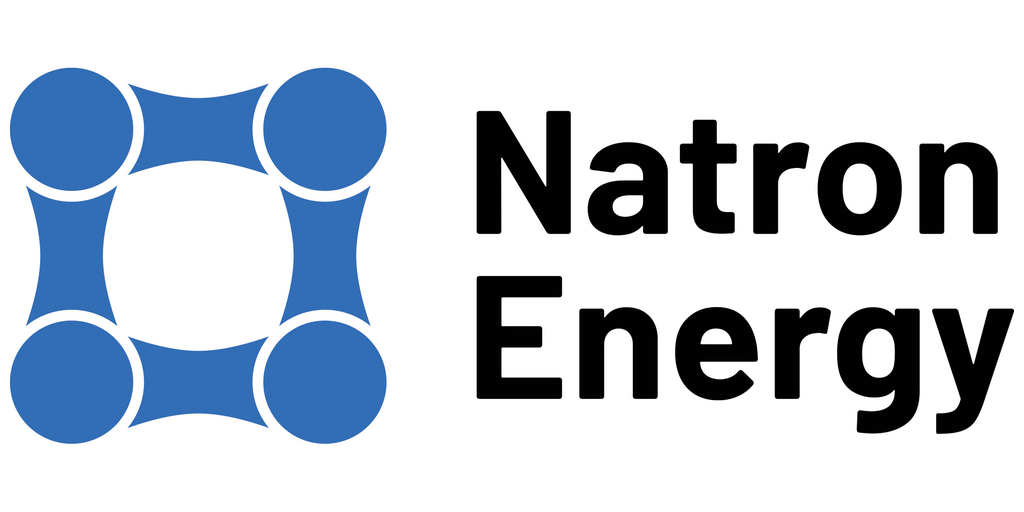
Natron Energy has introduced a groundbreaking sodium-ion battery technology that stands to change the landscape of the battery industry. By replacing the commonly used lithium-ion technology with sodium-ion technology, Natron’s batteries offer a range of benefits. They have high power, long life cycles, and are completely fire-safe without toxic materials, rare earth elements, or conflict minerals.
The Prussian blue electrodes that Natron has patented store and transfer sodium ions faster and more frequently with lower internal resistance than any other commercial battery. Natron’s sodium-ion batteries have zero strain during charge/discharge, 10 times faster cycling, and a cycle life of over 50,000 cycles, making them a sustainable solution for industrial mobility.
Natron’s sodium-ion batteries use standard lithium-ion pouch cell production lines while also relying on a more sustainable chemistry. Unlike lithium-ion batteries, Natron’s cells do not rely on rare earth materials like cobalt and do not have a questionable supply chain. Instead, they are made from commodity materials such as aluminum, iron, manganese, and sodium-ions, which are abundant resources. As the world seeks to electrify to fight climate change, Natron’s sodium-ion batteries represent a responsible alternative to traditional lead and lithium batteries.
Sila Nanotechnologies: The Lithium-Ion Battery Reinvented
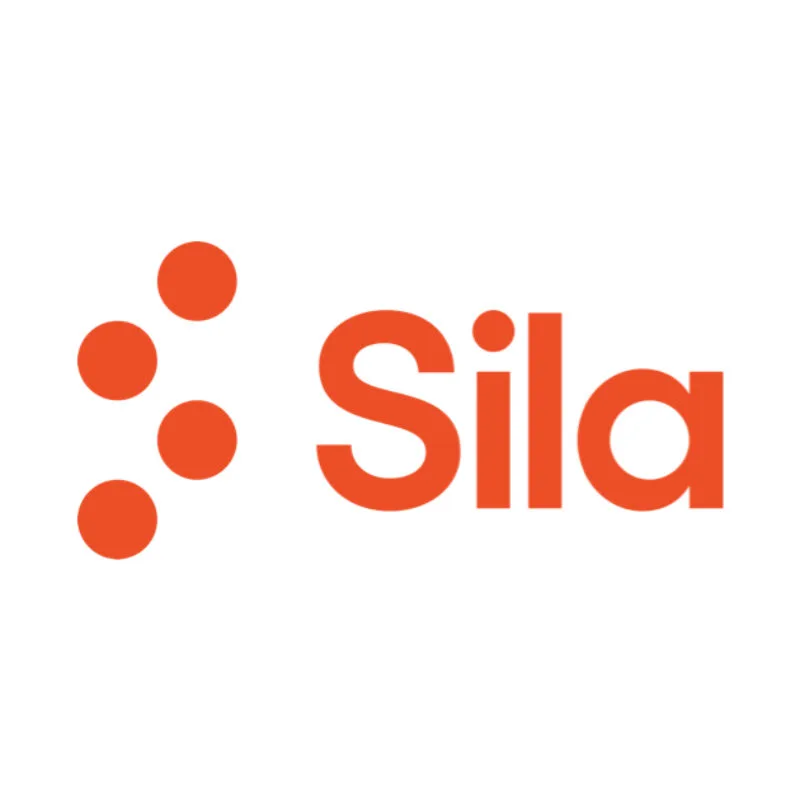
Sila Nanotechnologies is a company that is leading the charge in reinventing the traditional lithium-ion battery. By using a unique blend of materials, Sila has developed a new type of battery that promises to be more efficient, longer-lasting, and safer than traditional lithium-ion batteries.
The key to Sila’s technology is the use of silicon in the anode of the battery. Silicon has long been known to be a promising material for battery anodes because it can store more lithium ions than graphite, which is typically used in traditional lithium-ion batteries. However, silicon also tends to expand and contract during charging and discharging, which can cause the anode to crack and degrade over time.
Sila’s solution to this problem is to use a composite material that combines silicon with other materials to create a more stable anode. The result is a battery that can store more energy and last longer than traditional lithium-ion batteries. In fact, Sila claims that its batteries can provide up to 20% more energy density and 50% longer battery life than traditional lithium-ion batteries.
Advano: The Nanotechnology Company Making Better Batteries Possible
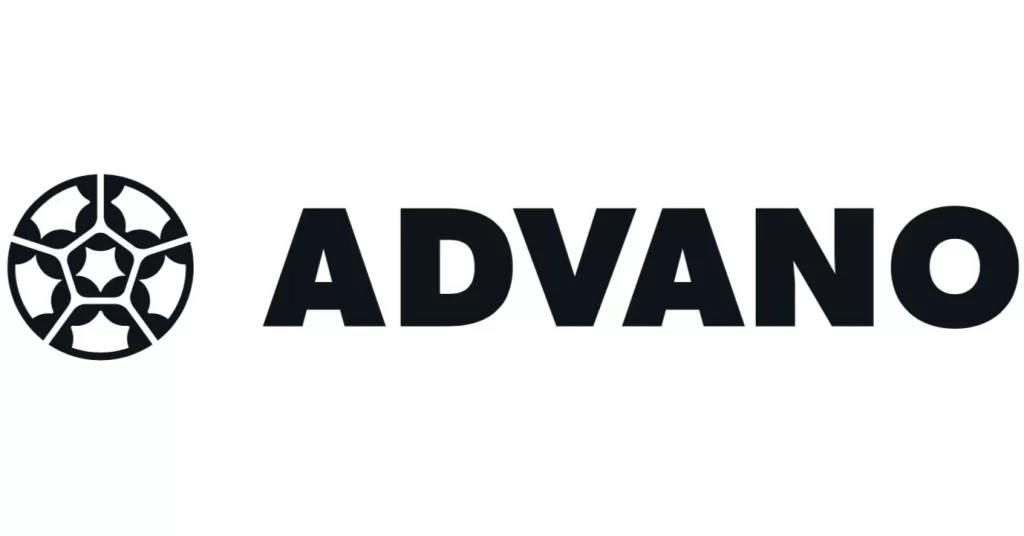
Advano is a nanotechnology company that is at the forefront of combining nanotechnology with fundamental chemical engineering principles to accelerate the renewable energy revolution. The company is developing advanced materials and processes that can be used to improve the performance and longevity of batteries, which are critical components of many renewable energy systems.
The key to Advano’s technology is their use of silicon nanoparticles, which they have developed using a proprietary manufacturing process. These silicon nanoparticles can be incorporated into the anode of a lithium-ion battery, which can increase its energy density and improve its overall performance.
One of the main advantages of Advano’s technology is its ability to extend the lifespan of lithium-ion batteries. Traditional lithium-ion batteries can degrade over time, reducing their capacity and effectiveness. However, by using Advano’s silicon nanoparticles, batteries can last longer and maintain their performance over a longer period of time.
Advano’s approach to sustainable energy technologies is aligned with the global shift towards a greener future, and its efforts to reduce reliance on fossil fuels are commendable. With the increasing demand for batteries in a wide range of industries, Advano’s technology could play a major role in shaping the future of energy storage. As a result, the company is attracting a lot of attention from investors and partners alike. It will be interesting to see how Advano continues to innovate and lead the way in battery technology in the years to come.
Qnovo: Optimizing Battery Performance and Lifespan

Qnovo is a company that specializes in battery management technology. They have developed a unique software-based approach to optimizing the performance and lifespan of lithium-ion batteries.
The key to Qnovo’s technology is their use of adaptive charging algorithms, which allow them to tailor the charging process to the specific needs of each battery. By utilizing charging to diagnose the internal properties of each battery in real-time, Qnovo’s algorithms can provide continuous diagnostics of a battery’s age while optimizing the rate and degree of charging. This reduces battery wear and maximizes battery life, ultimately leading to a more sustainable and efficient future for energy storage and distribution.
Qnovo’s algorithms can also anticipate hazardous failures before they occur. This is done by relying on detailed chemical models of the battery and machine learning from a vast amount of field data, detecting the presence of latent defects or excessive internal degradation.
Ilika: Pioneering Solid-State Batteries for IoT and Medical Devices

Ilika is a company that specializes in developing solid-state battery technology for various applications, such as MedTech, Industrial IoT, Electric Vehicles, and Consumer Electronics. The company has two main product lines, Goliath and Stereax.
Goliath is a large-format solid-state battery technology that aims to be a safer and more efficient alternative to current electric vehicle batteries. It is composed of an oxide solid electrolyte and a silicon anode, which enables higher energy and power density, extended range, and fast charging.
Stereax, on the other hand, is a micro-format solid-state battery that can be miniaturized at a millimeter scale. It is designed for next-generation Active Implanted Medical Devices or Industrial IoT sensors. It offers long life, low leakage, and a miniature power source, making it ideal for small wearables and sensors.
Ilika has operations in the UK, USA, China, and Israel, and it has secured commercial partnerships with companies such as Asahi Kasei, Shell, Toyota, and Murata. The company has also been financed by three rounds of venture capital and an IPO on the London Stock Exchange.
Voltaiq: Data Analytics for Battery Innovation

Voltaiq was founded in 2012 in New York City and is used by transportation OEMs, global consumer electronics companies, battery manufacturers, and energy storage developers and operators. The company’s software helps battery engineers automate repetitive tasks and provides powerful analytics capabilities that enable them to leverage their knowledge and experience.
Voltaiq offers a cloud-based platform for Enterprise Battery Intelligence™ that helps organizations optimize the batteries in their products. The platform automatically collects battery performance data and metadata, which is then cleaned, labeled, and stored in a secure, centralized location. Data from disparate sources is harmonized to a common format, and key time-series and per-cycle KPIs and data features are extracted.
The platform enables users to quickly visualize, analyze, and compare data with interactive charting, configurable dashboards, and protocol-specific analytical modules. Users can also develop proprietary analytics, simulation models, and machine learning algorithms in-app with cleaned, featurized data and open-source models. The platform allows for collaboration and customization and can be integrated with other tools and platforms through open APIs.
QuantumScape: The Promise of Solid-State Batteries for Electric Vehicles

QuantumScape is another company that is making significant strides in the development of solid-state batteries. In particular, their focus is on using solid-state batteries to power electric vehicles.
QuantumScape’s lithium-metal solid-state batteries are designed to charge faster, go farther, last longer, and operate more safely than today’s EVs and gas-powered vehicles, bringing us closer to a lower-carbon future. They have developed the industry’s first anode-less cell design, which delivers high energy density while lowering material costs and simplifying manufacturing.
Their technology platform is designed to pair with a variety of cathode chemistries, enabling optimization for diverse energy storage applications and giving their platform the flexibility to benefit from future cathode chemistry advancements. Two major innovations of QuantumScape’s technology are an anodeless architecture and a proprietary solid ceramic separator, which improve energy density, charging speeds, and safety.
QuantumScape’s technology has the potential to significantly increase volumetric and gravimetric energy densities by eliminating graphite/silicon anode host material, enable <15-minute fast charge (10-80%) by eliminating lithium diffusion bottleneck in anode host material, extend the useful lifetime by eliminating capacity loss at anode interface, eliminate organic separator and replace it with a solid-state separator that is nonflammable and noncombustible, and lower cost by eliminating anode host material and manufacturing costs.
Amprius Technologies: Revolutionizing Battery Technology with Silicon Anode Platform
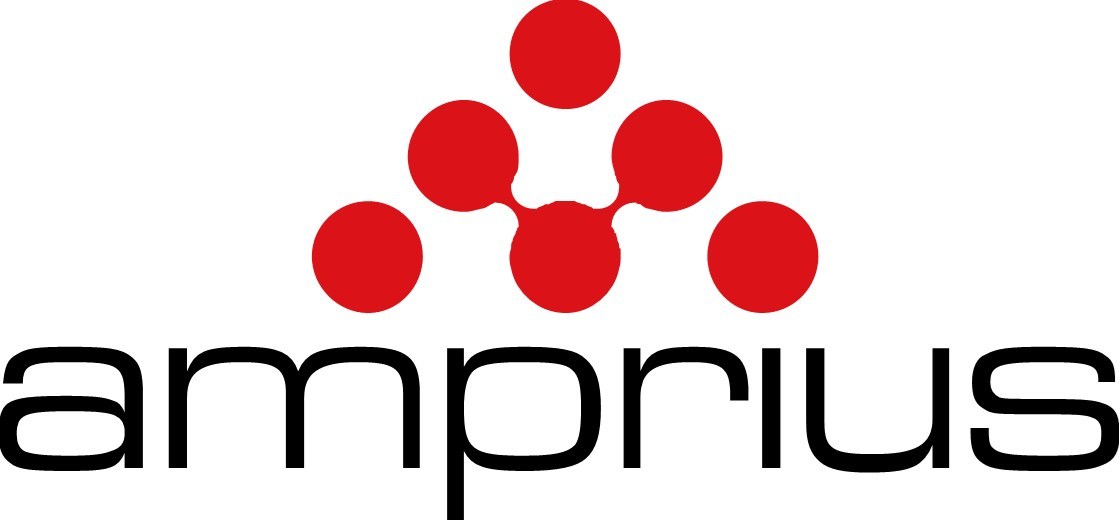
Founded in 2008, Amprius Technologies is a leading innovator in high-energy lithium-ion batteries, revolutionizing battery technology with its patented silicon anode platform. By utilizing existing commercial manufacturing processes, Amprius can scale its production with ease. The cathode and assembly processes remain unchanged, with only the anode manufacturing line being changed.
The company’s silicon anode batteries provide superior performance compared to traditional graphite anode batteries. With up to 450 Wh/kg and 1,150 Wh/L energy density and up to 10C power density, Amprius’ batteries are a game-changer in the industry. The fast charge rate capability of 80% in under 6 minutes is impressive, and the wide operating temperature range of -30°C to 55°C makes these batteries versatile and suitable for various applications.
Amprius’ silicon batteries have been tested and validated by industry-leading partners, proving their commercial viability. The high content of active silicon material in these batteries means that they offer the highest ratio of energy to power. Silicon is the best material for energy density, and using more silicon provides batteries with higher energy density, making Amprius’ batteries the best choice for electric vehicles, aircraft, drones, and wearables.
The excellent cycle life of Amprius’ Silicon Batteries is continuously improving, as demonstrated in real-world use with multiple organizations, including US National Labs and major aerospace companies. The 100% silicon anode in these batteries provides around 10 times more capacity than traditional graphite anodes, making them a more cost-effective and efficient solution.
Romeo Power: Building Sustainable Batteries for the Future
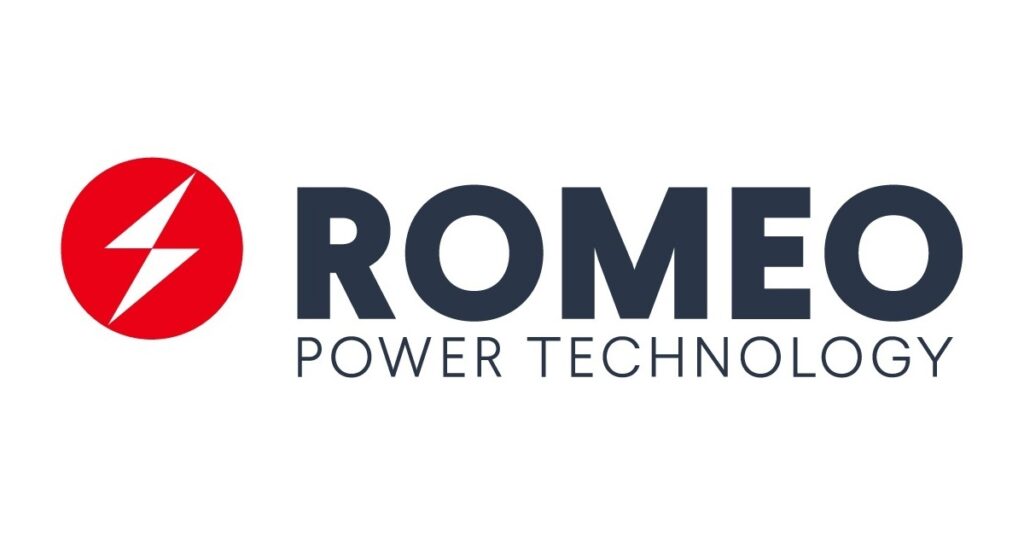
Romeo Power is a leading energy technology company that designs and manufactures lithium-ion battery modules and packs for commercial electric vehicles. Its advanced hardware and battery management system enable large-scale sustainable transportation by delivering safe, longer-lasting batteries with shorter charge times. The company has a 7 GWh-capable manufacturing facility in Los Angeles and serves the battery electric vehicle (BEV) medium-duty short-haul and heavy-duty long-haul trucking markets, as well as specialty trucking and buses.
Romeo Power has a diversified and high-quality customer base today that represents an estimated nearly 70% of the North America Class 8 market. The company has varying forms of agreements with customers, enhancing visibility into the company’s future growth, including over $300 million of currently contracted revenue. The company also has strategic partnerships with global leaders in vehicle component technologies, including BorgWarner, a global tier-one automotive supplier, and The Heritage Group, a leader in environmental and recycling services.
Romeo Power’s energy technology has positioned it to lead the electrification of the global commercial vehicle market, which has an estimated total addressable market of approximately $665 billion with over 17 million vehicles sold annually. As more logistics companies commit to electric fleets and major OEMs announce electric vehicle programs, Romeo Power is poised for unprecedented growth.
Disclaimer:
The use of any third-party company’s logo, trademark, or any other intellectual property on this website is solely for informational purposes and does not imply endorsement or affiliation with our website. We make no claims to ownership of these logos and are not affiliated with or endorsed by the companies that own them.


